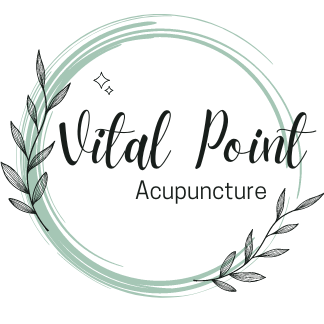PCOS
Rebecca Sweeney- Acupuncturist.
One thing we see more and more of in our clinic is the women presenting with PCOS. A lot of these women have no idea what this thing is and what it means to them. There are a couple of things to know about this condition which we will go through in this blog, also some things to know about with diet and lifestyle that can help.
So, first of all the most common question is “What is it”
Well unfortunately that answer isn’t very straight forward but the basics are that PCOS is a metabolic disorder that can cause hormonal imbalances and a whole menu of symptoms including irregular or absent periods, problems with your fertility, acne, hair loss, weight gain, excess facial hair, diabetes, high blood pressure, fatigue and mood swings.
PCOS is a “syndrome” or group of symptoms that affects the ovaries and ovulation. It’s 3 main features are:
- Cysts on the ovaries
- High levels of androgens
- Irregular or skipped periods.
The word “polycystic” means “many cysts”. In PCOS, many small fluid filled sacs grow inside the ovaries but these sacs are actually follicles, each containing an immature egg. The eggs never mature enough to trigger ovulation. This lack of ovulation then alters the levels of Oestrogen, Progesterone, FSH, and LH. Oestrogen and progesterone levels are lower than usual, while androgen levels are higher than usual. Androgens are a male sex hormone such as testosterone, therefor the presence of these excess hormones disrupt the menstrual cycle so women with PCOS get fewer periods than usual.
The next question we normally get from clients is “what do I do now?”
So, whether you are wanting to just regulate your periods or whether you are actively trying for a baby there is many things you can do to help with PCOS. These include:
- Vitamins/supplements
- Acupuncture (refer below)
- Diet (eliminating sugar)
- Exercise
- Eliminate stress (as much as possible)
(we will go through these things in more detail in our next blog)
Studies that look at acupuncture as a treatment option for PCOS:
https://www.ncbi.nlm.nih.gov/pmc/articles/PMC3773899/-This review addresses acupuncture as a potential treatment option for reproductive and endocrine disturbances in women with PCOS. Several clinical and animal experimental studies indicate that acupuncture is beneficial for ovulatory dysfunction in PCOS
https://www.ncbi.nlm.nih.gov/pubmed/10716298- this study concludes that repeated electro acupuncture treatments induce regular ovulations in more than one third of the women with PCOS. The group of women with good effect had a less androgenic hormonal profile before treatment and a less androgenic hormonal profile before treatment and a less pronounced metabolic disturbance compared with the group with no effect. For this selected group EA offers an alternative to pharmacological ovulation induction.
A common mistake is women are diagnosed with PCOS purely from one ultrasound examination. To properly diagnose a woman with PCOS they need to present with at least 2 out of 3 of the following things as mentioned above. High androgen levels, irregular periods and cysts on the ovaries confirmed by pelvic ultrasound.
Difference between PCO and PCOS
PCO refers to an ultrasound image of the ovaries that appear to be polycystic (ovaries containing high density of partially mature follicles.
PCOS is the metabolic syndrome that is confirmed by blood test with high levels of androgens, irregular periods, and cysts on the ovaries.
PCO is more common than PCOS
PCO is not a disease, whilst PCOS is a metabolic condition
Women with PCOS are at risk of developing the associated short and long term affects, whereas women with PCO are not
PCOS has symptoms and is evident early in life whilst PCO has no symptoms and often discovered by chance
The emergence of cysts in PCO may be caused by a variety of reasons as opposed to PCOS where it is linked to a hormonal disorder
Women with PCO can still get pregnant, whilst those with PCOS may struggle with infertility
What we do here at Vital Point Acupuncture and Massage if a client comes in presenting with PCOS?
First off all we take an extensive case history, asking all sorts of questions ranging from diet to sleep, to bowel movements, to menstrual cycles. This helps the therapist get an understanding of how your body operates. This will give the therapist a chance to work out your diagnosis and explain the treatment to you.
We have acupuncture available Mon-Sat during the week.
Stay tuned for more to come on PCOS (vitamins and diet and lifestyle)
-Rebecca Sweeney
(BHSc Acupuncture)

Good Article Bec thanks.
Hey There. I found your blog using msn. This is an extremely well written article. I’ll be sure to bookmark it and return to read more of your useful information. Thanks for the post. I’ll certainly return.